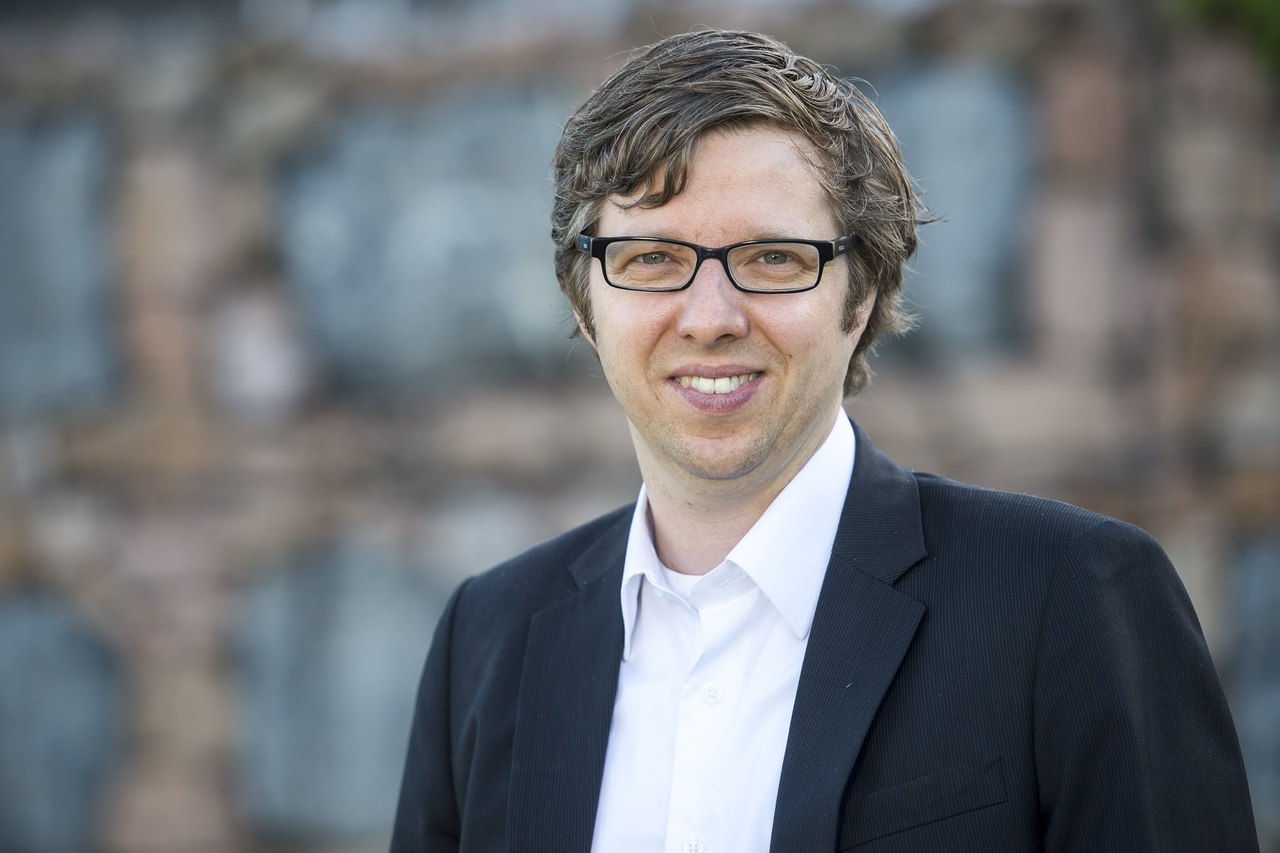‘We academics should endeavour to transform complex themes into simple language, so that politics and industry can benefit from these ideas.’
A personal impulse for scientific progress from Dr Stefan Wilhelm, Scientific Associate at the Chair of International Management and Marketing & Sales Manager at innoForce Est.
A personal impulse for scientific progress from Dr Stefan Wilhelm, Scientific Associate at the Chair of International Management and Marketing & Sales Manager at innoForce Est.
‘We academics should endeavour to transform complex themes into simple language, so that politics and industry can benefit from these ideas.’

A personal impulse for scientific progress from Dr Stefan Wilhelm, Scientific Associate at the Chair of International Management and Marketing & Sales Manager at innoForce Est.
‘Along with “us lot” – the more than 450 young academics from all over the world – the 17 Nobel Laureates have spent four days in Lindau discussing a very wide range of aspects of economic theory. At the start of the conference on Wednesday, 20 August, the German Federal Chancellor Dr Angela Merkel opened the Nobel Laureate Meeting with a critique of the accuracy of expert assessments. At the close of her address she observed that “Even the most complicated matters can be formulated in simple terms. This is an essential precondition if we are to be able to understand them at all. On that note, I hope that you have been able to understand my remarks, and thank you for your attention.” ’

Federal Chancellor Angela Merkel
Picture / credit: Rolf Schultes / Lindau Nobel Laureate Meetings
‘That sentence stayed with me on the following days of the conference during the various academic lectures and panel discussions, and made it clear to me that “we” academics should endeavour to transform complex themes into simple language, so that politics and industry can benefit from these ideas.’
Focus on the human being
‘The focus of the entire event, according to Countess Bettina Bernadotte, President of the Council for the Lindau Nobel Laureate Meetings, is “not on academic contributions but on human beings” – or in other words, “It’s not about papers, it’s about people.” For me too, this telling summary has been central over the past few days.’

Countess Bettina Bernadotte, President of the Council for the Lindau Nobel Laureate Meetings
Picture / credit: Rolf Schultes / Lindau Nobel Laureate Meetings
‘So during the entire conference numerous social events were organised, focusing on the Nobel Laureates and the young researchers attending. A boat trip to the island of Mainau at the end of the week provided an opportunity for intensive informal discussions with the Nobel prizewinners.’
Big ideas help small people
‘On the island of Mainau Queen Silvia of Sweden presented a prize to a young economic scientist in the name of her World Childhood Foundation. Under the motto “Your big idea will help small people”, young academics had been invited in the run-up to the event to submit their thoughts on how companies can work with the Foundation and so derive benefit from it.’

Queen Silvia of Sweden
‘After this Queen Silvia opened a panel discussion under the auspices of the Lindau Nobel Laureate Meeting on Economic Sciences, with Nobel Laureates Peter A. Diamond, Robert C. Merton and Alvin E. Roth taking part. The discussion was moderated by Thorsten Persson. The Nobel Laureates defended the faulty judgments of economic scientists in connection with the financial crisis. According to Peter A. Diamond, economists have to work with models which contain numerous estimated values. Robert C. Merton stressed the limits of virtual models, as abstract constructs in an ever more complex world, which can only give an incomplete representation of reality. It was made clear to me that even Nobel Laureates are human beings as well, so you cannot expect their models to be invariably one hundred percent correct.’

Boat trip to the island of Mainau
Picture / credit: Christian Flemming / Lindau Nobel Laureate Meetings
Knowledge transfer
‘For me this closes the circle starting from my earlier remarks: politics and science must communicate and harmonise with one another. The one cogwheel must connect smoothly with the next one, otherwise the machine fails to function.’
– ‘It’s not about papers, it’s about people.’
Further impressions and experiences of the four researchers from the University of Liechtenstein may be found at
www.uni.li/lindaunobel
www.facebook.com/uni.li
twitter.com/uni_li
